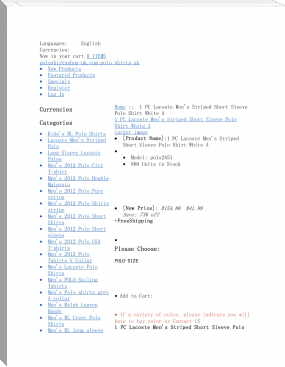The Ghost Kings, H. Rider Haggard [best thriller books to read TXT] 📗

- Author: H. Rider Haggard
Book online «The Ghost Kings, H. Rider Haggard [best thriller books to read TXT] 📗». Author H. Rider Haggard
So having explained the matter to her father, and obtained his consent, Rachel, who desired to impress these savages, threw a white shawl about her, as Noie instructed her to do. Then, letting her long, golden hair hang down, she went out alone carrying a light assegai in her hand, to the place where the messengers, six of them, and those who had driven the cattle from Zululand, were encamped in the guest kraal, at the gate of which, as it chanced, lay a great boulder of rock. On this boulder she took her stand, unobserved, waiting there till the full moon shone out from behind a dark cloud, turning her white robe to silver. Now of a sudden the messengers who were seated together, talking and taking snuff, looked up and saw her.
"_Inkosazana-y-Zoola_!" exclaimed one of them, rising, whereon they all sprang to their feet and perceiving this beautiful and mysterious figure, by a common impulse lifted their right arms and gave to her what no woman had ever received before--the royal salute.
"Bayète!" they cried, "Bayète!" then stood silent.
"I hear you," said Rachel, who spoke their tongue as well as she did her own. "It has been reported to me that you wished to see me, O Mouths of the King. Behold I am pleased to appear before you. What would you of Inkosazana-y-Zoola, O Mouths of the King?"
Then their spokesman, an old man of high rank, with a withered hand, stepped forward from the line of his companions, stared at her for a while, and saluted again.
"Lady," he said humbly, "Lady or Spirit, we would know how thou earnest by that great name of thine."
"It was given me as a child far away from here," she answered, "because in a mighty tempest the lightnings turned aside and smote me not; because the waters raged yet drowned me not; because the lions slept with me yet harmed me not. It came to me from the high Heaven that was my friend. I do not know how it came."
"We have heard the story," answered the old man (which indeed they had with many additions), "and we believe. We believe that the Heavens above gave thee their own name which is the name of the Spirit of our people. That Spirit I have seen in a dream, and she was like to thee, O Inkosazana-y-Zoola."
"It may be so, Mouth of the King, still I am woman, not spirit."
"Yet in every woman there dwells a spirit, or so we believe, and in thee a great one, or so we have heard and believe, O Lady of the Heavens. To thee, then, again we repeat the words of Dingaan and of his council which to-day we have said in the ears of him who thinks himself thy father. To thee the roads are open; thine are the cattle and the kraals; here is an earnest of them. Thine are the lives of men. Command now, if thou wilt, that one of us be slain before thee, and whilst thou watchest, he shall look his last upon the moon."
"I hear you," said Rachel, quietly, "but I seek the life of none who are good. I thank the King for his gift; I wish the King well. I remember that life and death lie in my hands. Say these words to the King."
"We will say them, but wilt thou not come, O Lady, as the King desires? A regiment shall meet thee on the river bank and lead thee to his house. Unharmed shalt thou come, unharmed shalt thou return, and what thou askest that shall be given thee."
"One day, perchance, I will come, but not now. Go in peace, O Mouths of the King."
As she spoke another dark cloud floated across the moon, and when it had passed away she stood no more upon the rock. Then, seeing that she was gone, those messengers gathered up their spears and mats, and returned swiftly to Zululand.
When she readied the house again Rachel told her father and mother all that had passed, laughing as she spoke.
"It seems scarcely right, my dear," said Mr. Dove, when she had done. "Those benighted heathens will really believe that you are something unearthly."
"Then let them," she answered. "It can do no one any harm, and the power of life and death with the rest of it, unless it was all talk as I suspect, might be very useful one day. Who knows? And now the Princess of the Heavens will go and set the supper, as Noie--I beg pardon, Nonha--is off duty for the present."
Afterwards she asked Noie who was the old man with a withered hand who had spoken as the "King's Mouth."
"Mopo is his name, Mopo or Umbopo, none other, O Zoola," she answered. "It was he who stabbed T'Chaka, the Black One. It is said also that alone among men living, he has seen the White Spirit: the Inkosazana. Thrice he has seen her, or so goes the tale that my father, who knew everything, told to me. That is why Dingaan sent him here to make report of you." And she told her all the wonderful story of Mopo and of the death of T'Chaka, which Rachel treasured in her mind. [Footnote: For the history of Mopo, see "Nada the Lily."--AUTHOR.]
Such was Rachel's first introduction to the Zulus, an occasion on which her undoubted histrionic abilities stood her in good stead.
This matter of the embassy happened and in due course was almost forgotten, that is until a certain event occurred which brought it into mind. For some time, however, Rachel thought of it a good deal, wondering how it came about that her native name and the strange significance which they appeared to give to it had taken such a hold of the imagination of the Zulus. Ultimately she discovered that the white man, Ishmael, was the chief cause of these things. He had lived so long among savages that he had caught something of their mind and dark superstitions. To him, as to them, it seemed a marvellous thing that she should have acquired the title of the legendary Spirit of the Zulu people. The calm courage, too, so unusual in a woman, which she showed when she shot the warrior, and at the risk of her own life saved that of the girl, Noie, impressed him as something almost ultra-human, especially when he remembered his own conduct on that occasion. All of this story, of course, he did not tell to the Zulus for he feared lest they should take vengeance for his share in it. But of Rachel he discoursed to the King and his indunas, or great men, as a white witch-doctoress of super-natural power, whose name showed that she was mixed up with the fortunes of the race. Therefore, in the end, Dingaan sent Mopo, "he who knew the Spirit," to make report of her.
When he was not absent upon his hunting or trading expeditions, Ishmael visited Ramah a great deal and, as Rachel soon discovered, not without an object. Indeed, almost from the first, her feminine instincts led her to suspect that this man who, notwithstanding his good looks, repelled her so intensely, was falling in love with her, which in truth he had done once and for all at their first meeting. In the beginning he did not, it is true, say much that could be so interpreted, but his whole attitude towards her suggested it, as did other things. For instance, when he came to visit the Doves, he discarded his garments of hide, including the picturesque zebra-skin trousers, and appeared dressed in smart European clothes which he had contrived to obtain from Durban, and a large hat with a white ostrich feather, that struck Rachel as even more ludicrous than the famous trousers. Also he was continuously sending presents of game and of skins, or of rare karosses, that is, fur rugs, which he ordered to be delivered to her personally--tokens, all of them, that she could not misunderstand. Her father, however, misunderstood them persistently, although her mother saw something of the truth, and did her best to shield her from attentions which she knew to be unwelcome. Mr. Dove believed that it was his company which Ishmael sought. Indeed in this matter the man was very clever, contriving to give the clergyman the impression that he required spiritual instruction and comfort, which, of course, he found forthcoming in an abundant supply. When Mrs. Dove remonstrated, saying that she misdoubted her of him and his character, her husband answered obstinately, that it was his duty to turn a sinner from his way, and declined to pursue the conversation. So Ishmael continued to come.
For her part Rachel did her best to avoid him, instructing Noie to keep a constant look-out both with her eyes and through the Kaffirs, and to warn her of his advent. Then she would slip away into the bush or down to the seashore, and remain there till he was gone, or if he came when she could not do so, in the evening for instance, would keep Noie at her side, and on the first opportunity retire to her own room.
Now the result of this method of self-protection was to cause Ishmael to hate Noie as bitterly as she hated him. He guessed that the girl knew the dreadful truth about him; that it was he, and no other, who had counselled Dingaan to kill her father and all his family, and take her by force into his house, and although she said nothing of it, he suspected that she had told everything to Rachel. Moreover, it was she who always thwarted him, who prevented him time upon time from having a single word alone with her mistress. Therefore he determined to be revenged upon Noie whenever an opportunity occurred.
But as yet he could find none, since if he were to tell the Zulus that she still lived, and cause her to be killed or taken away, he was sure that it would mean a final breach with the Dove family, all of whom had learned to love this beautiful orphan maid. So he nursed his rage in secret.
Meanwhile his passion increased daily, burning ever more fiercely for its continued repression, until at length the chance for which he had waited so long came to him.
Having become aware of Rachel's habit of slipping away whenever he appeared, he showed himself on horseback at a little distance, then waited a while and, instead of going up to the mission station, rode round it, and hid in some bush whence he could command a view of the surrounding country. Presently he saw Rachel, who was alone, for she had not waited to call Noie, hurrying towards the seashore, along the edge of that kloof down which ran the stream where the crocodiles lived. Presently, when she had gone too far to return to the house if she caught sight of him, he followed after her, and, leaving his horse, at last came up with her seated on a rock by the pool in which she had bathed on the morning of the massacre.
Walking softly in his veld-schoens, or shoes made of raw hide, on the sand, Rachel knew nothing of his coming until his shadow fell upon her. Then she sprang up and saw him, smiling and bowing, the ostrich-plume hat in his hand. Her first impulse was to run away, but recovering herself she nodded in a friendly fashion, and bade him "Good day," adding:
"What are you doing here, Mr. Ishmael, hunting?"
"Yes," he answered, "that's it. Hunting you. It has been a long chase, but I have caught you at last."
"Really, I am not a wild creature, Mr.





Comments (0)